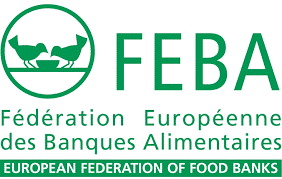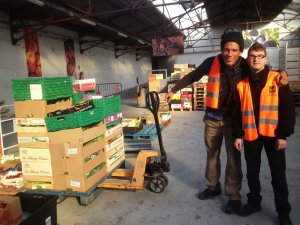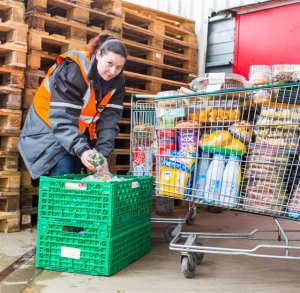Poverty in Europe is a reality, and food insecurity is often closer to us than we would like to think. In 2015, 119 million people of the EU-28 population were at risk of poverty or social exclusion. Among them, 43 million (8.1%) were not able to afford a quality meal every second day.
At the same time, Europeans waste 88 million tons of food along the supply chain each year, with an estimated cost of €143 billion. 51 million tons of this are edible and 23 million tons occur in sectors of primary production, processing and manufacturing, retail and food service.
According to the Food and Agriculture Organization of the United Nations, food waste is currently responsible for adding 3.3 billion tonnes of greenhouse gases into the planet’s atmosphere per year. If food loss and waste were a country, it would be the third largest greenhouse gas emitter in the world.
This huge waste has severe consequences for local communities, global businesses, and the environment.
A Global Call to Solve the Issue
Since their launch in September 2015, the UN Sustainable Development Goals (SDGs) identify 17 clear goals concerning sustainability, three of which respond directly to the issues of food waste and food poverty.
SGD 1: End Poverty in all its forms everywhere
SGD 2: End hunger, achieve food security and improved nutrition and promote sustainable agriculture
SDG 12: Ensure sustainable consumption and production patterns includes amongst its objectives to “halve per capita global food waste at the retail and consumer level, and reduce food losses along production and supply chains by 2030”.
And, positive actions are being seen elsewhere. In 2015, for example, The Consumer Goods Forum (CGF) launched its Food Waste Resolution, with members agreeing to halve food waste in their own operations by 2025 in line with the aforementioned UN target of 2030. More recently, the CGF also called for a global standardisation of food date labelling to help reduce waste and consumer confusion around date labels.
To achieve these goals, all stakeholders (from companies, public sector and non-profits) must work together to move towards a more sustainable world.
What Role do Food Banks Play?
Food banks are at the forefront of the day-to-day fight against food waste and over production. For more than 30 years, European food banks have provided, and continue to provide, solutions to solve major sustainability challenges, namely poverty, hunger and food waste.
Food banks collect edible food (which conforms to strict food safety regulations) from companies, including manufacturers and retailers, as well as individuals. The food is then stored and sorted to prepare nutritionally balanced meal packages, comprised of fresh and non-perishable products. The food banks then redistribute these packages to partner charities, who then provide them to people in need.
Food banks not only strengthen vulnerable communities, but provide a solution regarding food waste and its environmental impact. Thanks to donations, a large quantity of edible food that would have gone to a landfill, creating C02 emissions and increasing water and energy wastage, is now being consumed by those most in need. Food Banks are at the crossroads of the social, health, economy, environment and education sectors.

We believe food banks are key to helping reduce the burden on families across Europe and to help reduce food shortages and the negative impact food waste has on the environment. By working with our partners and organisations like the CGF and its individual member companies, there is a solution to be found.
To read more about the work of FEBA, visit our website or our social media pages on Facebook and LinkedIn.
Yesim BROET
Partnerships & Development Manager
FEBA
Carolina DIAZ-LONBORG
Communication Manager
FEBA




